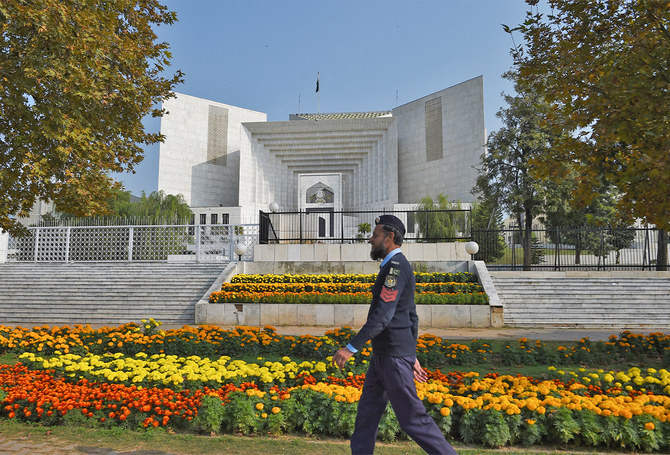
The Supreme Court has observed that the former deputy speaker of the National Assembly in his ruling to dismiss the no-trust resolution against former prime minister Imran Khan failed to substantiate that regime was changed on account of a foreign country's interference, emphasising the move was “jurisdictional excess” taken without any lawful authority.
A detailed judgement authored by Chief Justice of Pakistan (CJP) Umar Ata Bandial said neither the deputy speaker's ruling nor his detailed reasons claim that the cypher shows any member of the opposition parties (named or unnamed) to have interacted with a foreign state to bring the resolution of no-confidence (RNC) in order to oust the PM and his government.
The bona fides of the government’s defence of national security must be substantiated by evidence to justify the impugned ruling of April 3 given by the then deputy speaker, it stressed and added that a failure to do so will result in the impugned action of the government being examined under ordinary principles of judicial review.
On April 3, CJP Bandial had taken suo motu notice of the then NA’s deputy speaker Qasim Khan Suri's decision to dismiss the no-trust move in a shock move citing Article 5 of the Constitution.
After a brief hearing, a written order was issued which said the court would like to "examine whether such an action (dismissal of the no-trust motion on the basis of Article 5) is protected by the ouster (removal from the court's jurisdiction) contained in Article 69 of the Constitution."
Subsequently, on April 7, the top court in its landmark judgement set aside the deputy speaker's ruling to dismiss the no-trust resolution against the then prime minister Imran and the subsequent dissolution of the NA by the president on the PM's advice, with all five judges unanimously voting 5-0 against it.
In its detailed judgement on Wednesday, the apex court said the deputy speaker’s contention about a regime change conspiracy by the foreign country lacked verification from the respondents.
“The only information of such interference that is presently available before us is the opinion and apprehension of the deputy speaker that a foreign state is conspiring against the sovereignty and integrity of Pakistan,” the ruling pointed out.
Read PTI moves ECP against ‘pre-poll rigging’ in Punjab by-polls
The verdict noted that in the absence of cogent, reliable and relevant evidence showing the RNC to be contrary to Article 5 on account of being a product of collusion between its movers and the representatives of a foreign state, the apex cannot accept the respondents' defence that the alleged contravention of Article 95 of the Constitution by the deputy speaker was protected from judicial scrutiny on the claim of national security.
‘Suo motu for national security beyond jurisdiction’
The court also said that the respondents’ plea that the apex court should take suo motu notice of the defence of national security and allegation of breach of sovereignty as without precedent.
"Equally, in the absence of evidence prima facie demonstrating the plea of the respondents, the court lacks the jurisdiction to launch into a roving inquiry”, it added.
The judgment observed that without hearing any other member of the NA and without taking a vote on the RNC, he simply dismissed the latter on the basis of the singular statement of allegations made by the law minister.
The apex court judgement further noted that the deputy speaker had violated his substantive obligation to take a vote on the resolution of no-confidence as directed by Article 95(2) of the Constitution, adding that neither the Constitution nor the NA procedure rules empowered the speaker or the deputy speaker to dismiss no-trust resolution for being inadmissible or non-maintainable.
Accordingly, voting by members of the NA on resolutions mentioned in the Constitution, which includes the RNC, cannot be circumvented by the speaker or deputy speaker.
The judgment made it clear that the deputy speaker’s April 3 ruling failed to qualify for protection as part of the internal proceedings of the parliament for the purposes of Article 69(1).
"The ruling was not the outcome of a vote in the NA. Instead, it was a unilateral decision taken by the deputy speaker at the behest of the law minister."
"In so doing, the deputy speaker not only disregarded the provisions of Article 95 of the Constitution but also ruled on Article 5 which was a matter outside his cognisance and jurisdiction.”
"This is apart from condemning unheard the members of the opposition parties against whom serious allegations of disloyalty to the state and disobedience of the Constitution were levelled by the law minister."
The judgment further noted that the restoration of NA will strengthen the democratic norms of our political system under the constitution, namely, the parliamentary form of government. “It does not concern the court whether the RNC against the PM succeeds or fails.”
"Our foremost priority is the maintenance of constitutional order in the country which can only be achieved if the NA is restored and permitted to perform its functions under the Constitution. However, a NA that operates merely as a rubber stamp for the government of the day does not serve the country.”
It underscored that the governance of a nation can only be dynamic and efficient if it was managed by a government that is held to account by strong opposition. “But many a time in our legal and political discourse, the significance of a healthy opposition is overlooked," the top court regretted.
The court also said that the objection which rests on moral grounds fails to take into account that the law, including Articles 62 and 63 of the Constitution, the National Accountability Ordinance, 1999 and the Elections Act, 2017 allow persons accused of criminal offences to contest for and hold elected office. It is only upon the conviction of persons accused of such offences that they stand disqualified from contesting an election to a public office.





1725030039-0/Untitled-design-(2)1725030039-0-165x106.webp)



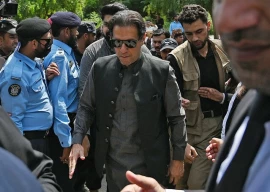
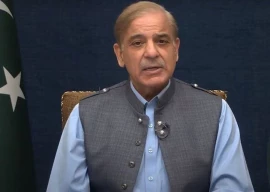



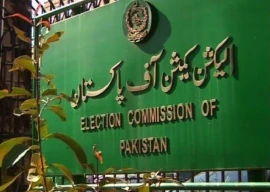
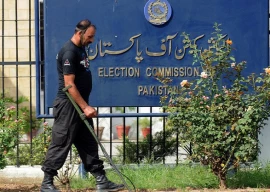






COMMENTS (2)
Comments are moderated and generally will be posted if they are on-topic and not abusive.
For more information, please see our Comments FAQ